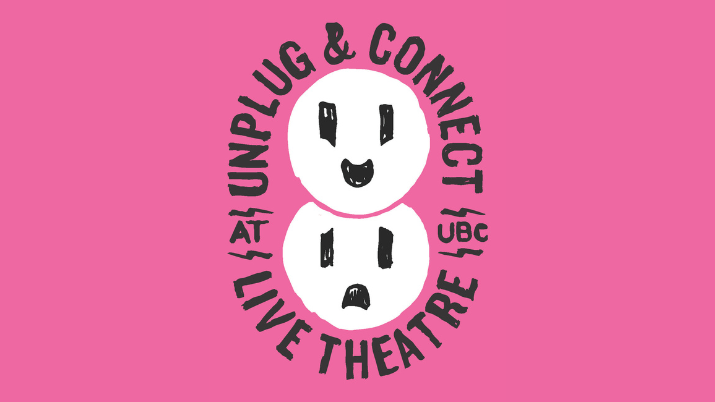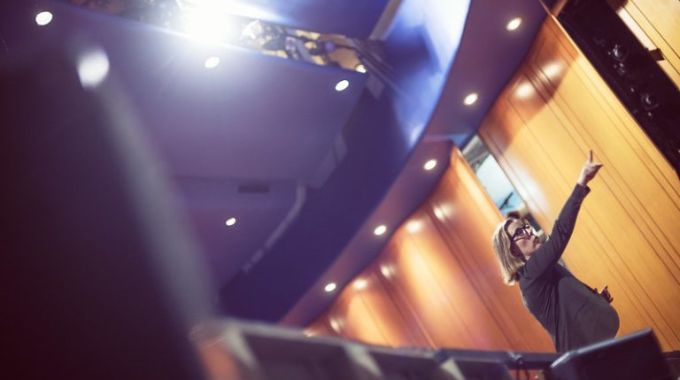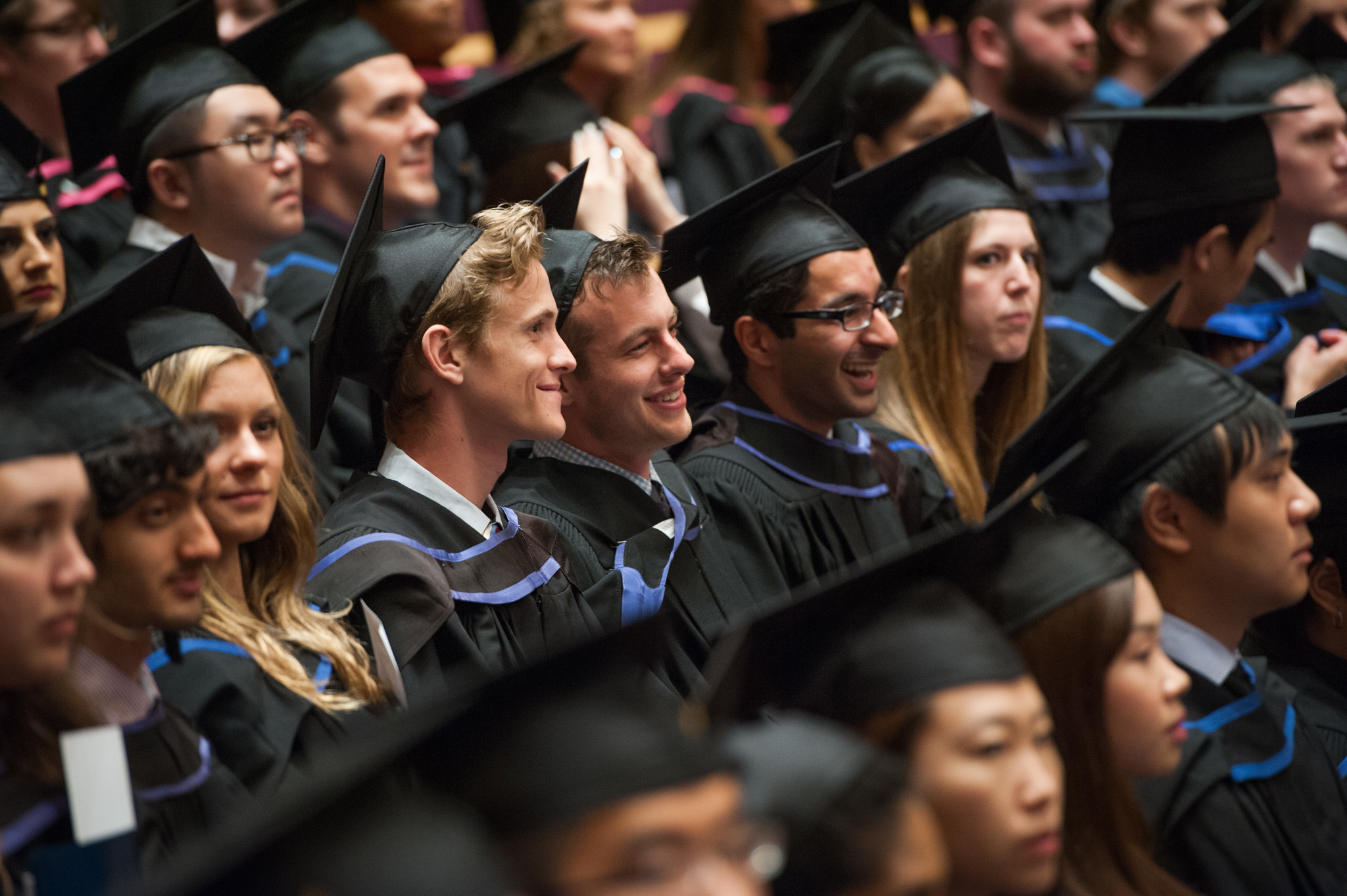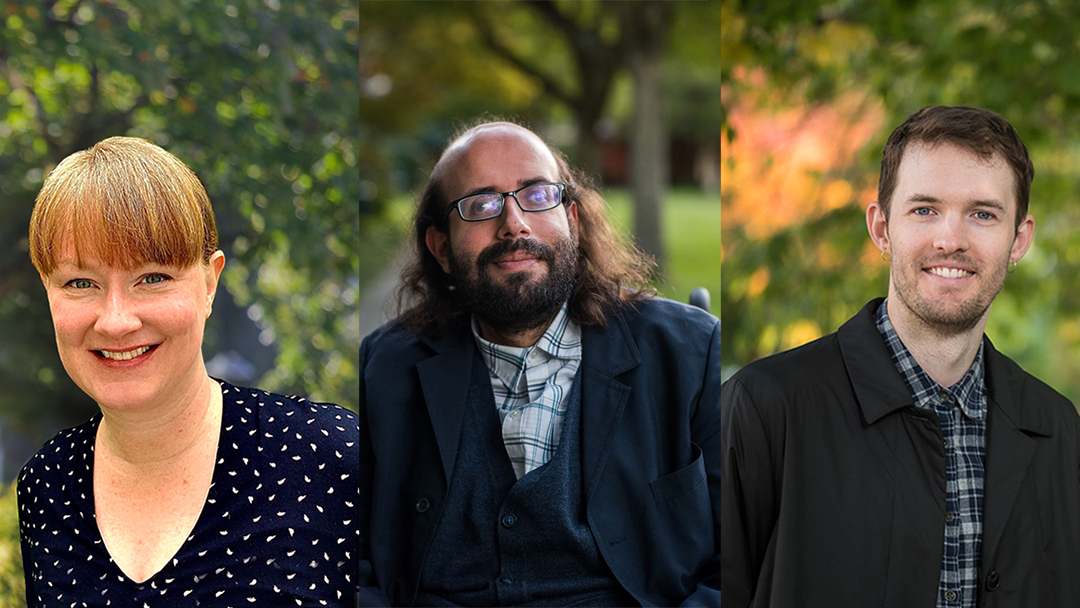

Every year, National AccessAbility Week celebrates diversity, inclusion, and accessibility. UBC Theatre and Film is proud to feature three members of our community who are driving social change in the performing arts. Through their work, and the works of others, our goal is to create a space where disability is properly represented in our community.
Meet the scholars who are redefining accessibility in the performing arts through their research.
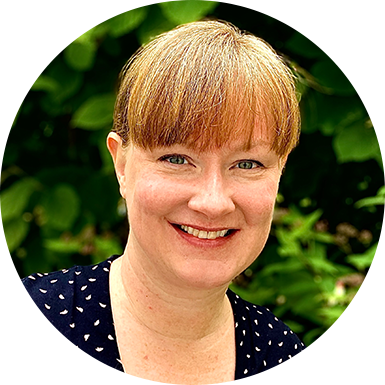

Dr. Kirsty Johnston (she/her)
Kirsty is a professor in Theatre Studies and she researches the intersections between disability, theatre, and performance. She has published two books, Stage Turns: Canadian Disability Theatre and Recasting Modernism: Disability Theatre and Modern Drama, on the diversity of disability theatre and how leading disability artists are re-imagining modern drama.
“Over time and in countless ways, theatre has contributed to ableism. I hope to contribute something of value to the dynamic international community of disability artists, activists, and scholars who are wrestling with these histories, dismantling ableist legacies, and re-imagining the world. ”
Can you tell us about your current research focus?
Trying to understand and share how disability artists productively disrupt long standing ableist theatre practices and aesthetics is a central focus of my work. My most recent book considers how disability artists have re-imagined iconic modern plays. I titled the book Recasting Modernism because this signals a change—both in terms of who gets to be on stage and shape the stories shared there, and how a mold we thought we knew is being recast. My current work is focused on late Canadian playwright David Freeman’s award-winning play Creeps (1971), recognized internationally as a harbinger of key ideas at play in the disability arts and culture movement.
What drew you to your current research focus?
I have been studying disability theatre for over twenty years. During my doctoral studies in Toronto, I saw an innovative production concerning mental illness, stigma and policing by what was then called the Workman Theatre Project, now called Workman Arts. It was the first production I witnessed that viscerally affected audiences in the ways that so many of the theorists I was reading about in school championed. Through work and graduate research with the company, I met many talented artists who led me to the dynamic international disability arts and cultural movement.
What does accessibility in the performing arts or theatre mean to you?
This question is so big, central, and complex for me that I’ll simply point to Graeae Theatre in the UK and their pioneering ethos of the “aesthetics of access.” Their approach assumes that arts and cultural access is an essential human right. This means arts and cultural access for disabled, Deaf/deaf, and Mad people needs to be carried through from beginning to end. Rather than an “extra” tacked on at the end of an otherwise ableist process, here access is a fundamental feature of the aesthetic and practice for all involved, on and off stage.
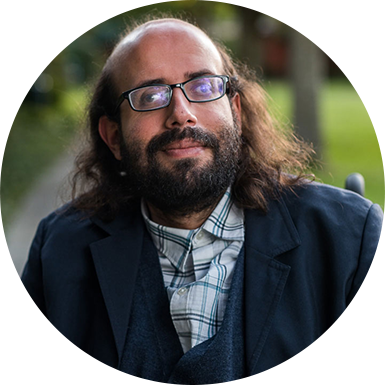

Dr. Stefan Sunandan Honisch (he/him)
Stefan is a Banting Postdoctoral Fellow in Theatre Studies. His postdoctoral research explores the relationship between aesthetics and politics in Helen Keller’s musical life, documented in Keller’s own writings, and in contemporary newspapers, magazines, photographs and films.
“My hope as a disabled researcher, musician, and educator, is to reach people who might ordinarily feel excluded by normative definitions of 'reader,' 'researcher,' 'educator,' and 'musician.' These labels, and the identities they signify, make a range of assumptions about what kinds of knowledge are deemed valuable, and about who is considered able to hold such knowledge.”
Can you tell us about your current research focus?
My current research, funded through the Banting Postdoctoral Fellowship program, focuses on Helen Keller (1880-1968), and in particular, on her writings about music. What her firsthand accounts reveal is a complex subjectivity, decidedly imprinted by the attitudes and prejudices of her time, yet finely tuned to the interactions between imagination, emotion, and more formal kinds of knowledge in her experiences of music.
What does accessibility in the performing arts mean to you?
As a disabled musician, my repertoire of lived experience shapes my understanding of access, and access barriers as moving points within a continuum that is, itself, dynamic, and aligns with what Elizabeth Brewer, Melanie Yergeau, and Cynthia Selfe identify as “transformative access,” a framework of understanding that challenges us to think of access as a relational, open-ended process through which we honor our own complex access needs, and those of others. This conceptual frame helpfully moves away from bureaucratic and hierarchical definitions that reduce access and accommodation to benefits extended by non-disabled people to disabled people.
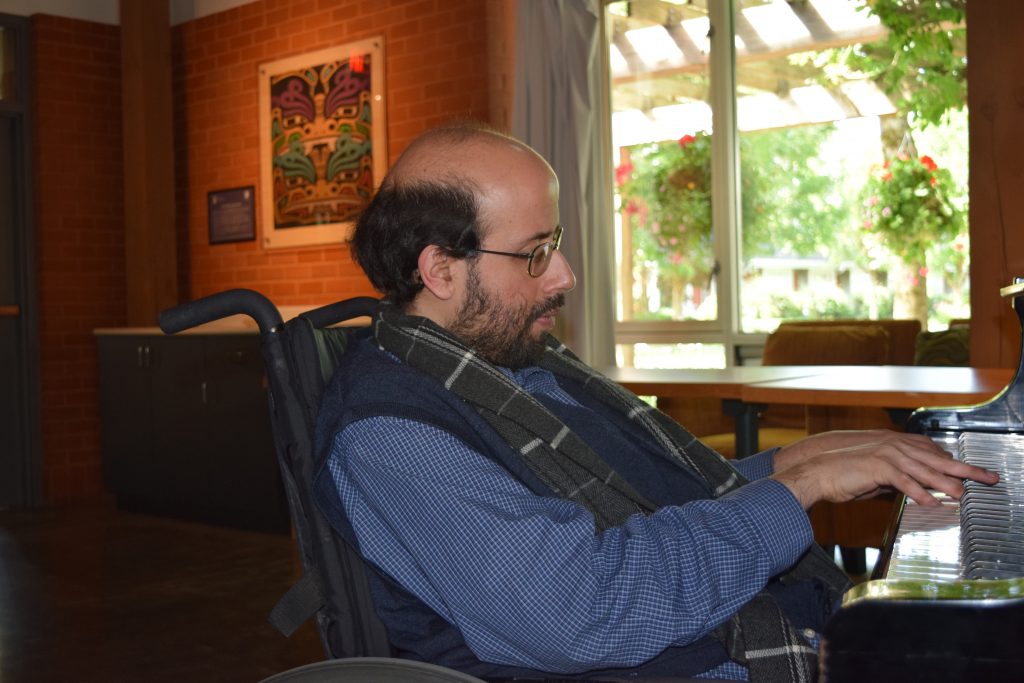

Dr. Stefan Sunandan Honisch playing piano. Photo credit: Jane Wang, St. John’s College, The University of British Columbia, 2017
What kind of impact do you want your research to have?
I would like my research to join the many examples of public scholarship that enact distinct forms of “transformative access.” Part of what this means is moving in theoretical, curricular, and pedagogical spaces that refuse familiarity, stability, and habit, and that instead welcome strangeness, unsettledness, and the spontaneous. This also means finding new ways to build community by asking familiar questions in unfamiliar ways, and by moving with communities whose needs, concerns, interests, and knowledge have often been unrecognized.
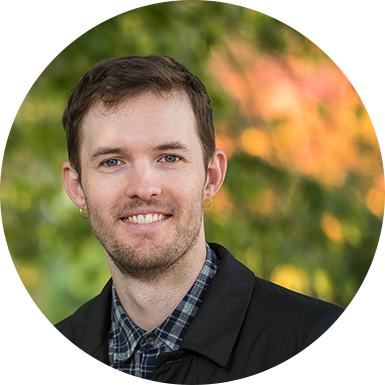

Matthew Tomkinson (he/they)
Matthew is a writer, composer, and doctoral candidate in Theatre Studies. His research explores the material, political, and psychosocial dimensions of sound within the Deaf, Disability, and Mad Arts.
“For me, it’s important to challenge the conventional understanding of academic knowledge as a one-way transfer from experts to laypeople. Apropos of my interest in sound, I think it’s equally important to listen, especially with respect to first-hand experience.”
Can you tell us about your current research focus?
My research explores the intersection of Sound Studies and Mad Studies, asking how theatre practitioners stage “mad listening” through various dramaturgical strategies. In particular, I’m interested in how listening subjectivities are shared (or not) between performers and audiences. One of the main bugbears in my dissertation is the concept of disability simulation and, accordingly, my research works to unpack the politics, ethics, and aesthetics of “listening as other.” Beyond representational concerns, I’m also interested in how people talk about these concepts, and how critics define the limits of shareable experience.
What drew you to your current research focus?
I came to this topic by way of my experience as a sound designer, my lived experience as a mad-identified artist-scholar, through my reading, and by talking with others about these subjects. Certain theatrical works also presented themselves as strong options for case studies, since they sparked questions that interest me. How does sound design for radio drama convey a sense of acoustic interiority? What does acousmatic sound have to do with simulating madness? Why is the experience economy so interested in sound as a means to promote empathy and intersubjective access?
What kind of impact do you want your research to have?
I hope my work will add something to existing conversations within mad activism and serve this particular community. At the very least, I would love for my research to generate further discussion around these ideas.
Over one billion people live with some form of disability. According to the World Health Organization, disabled people are the world’s largest minority. To fully include disabled people in the community, currently non-disabled people can start by learning more about disability culture, understanding the widespread nature of disability, and, most importantly, ensuring that disabled people are given an active role or leading the conversation in inclusion and accessibility.
Vancouver and UBC are home to many leaders in the disability arts and cultural movement, such as the Kickstart Disability Arts and Culture. At UBC, there is the President’s Working Committee on Disability Culture, Art and Equity and an emerging graduate association for disabled students.
Learn more about how UBC is creating inclusive learning, living and working environments for students, faculty and staff.
